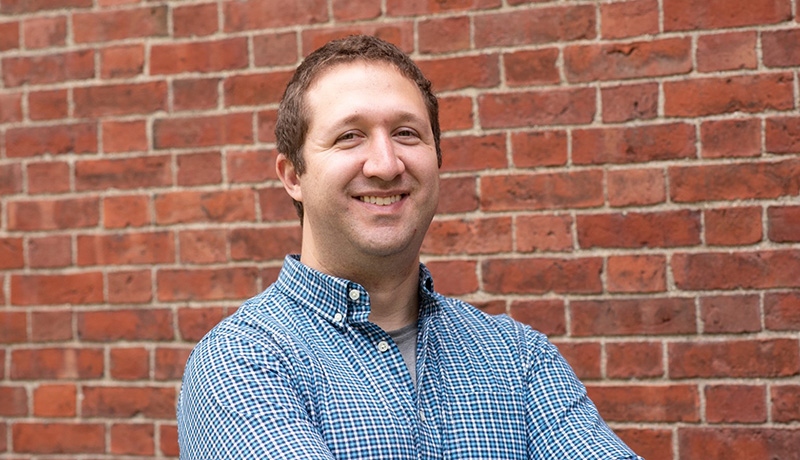As people get older, they are more likely to get Alzheimer’s disease. Unfortunately, there are a lot of things happening at the same time so it can be hard to tell what is causing their problems. I’m trying to develop methods to watch individual cells in the brain as they get sick, so we can distinguish which features of the disease cause problems and which features arise coincidentally.
Photo by Celia Muto
What are the big questions driving your research?
We recently came up with a way to watch individual neurons in a brain to figure out which ones die because of Alzheimer’s disease pathology. In doing so, we found characteristics that identify half of the neurons that die in the following week. Now we’re trying to see what other features let us identify these dying neurons, how early we can do so, and whether we can intervene and keep them alive.
What drew you to this area of neuroscience?
My grandmother had Alzheimer’s disease, which progressed substantially around the time when I was a postdoc. It was surprising for me to find out how many gaps there were when I tried to understand what was happening to her and why she struggled to remember. At the time I was trying to make technology that could study the brain with great spatial and temporal resolution, and it became clear to me that these tools could really help understand the changes that happen in a person suffering from Alzheimer’s disease.
What is the first experiment you remember doing?
I remember playing around with different edible acids to try and make the perfect snickerdoodles. I think that freshly squeezed lemon substitutes perfectly for cream of tartar, but there are many great-tasting cookies you can make using other fruits like grapes or plums instead.
What has been the most surprising thing you’ve learned in the lab or classroom so far?
Some of my favorite surprising facts come from “A Short History of Nearly Everything” by Bill Bryson. There is a lot in there, but one of the things that has stuck with me is how recent a lot of our knowledge is and how a lot of “common knowledge” can be generational. I’m almost as old as the theory that asteroids led to the extinction of dinosaurs. That will never not feel weird to me.
What are your hobbies outside of the lab—current, past, or future?
I love to play video games, and I’ve been an avid gamer since I was a child. Some of my first memories of gaming are playing Sonic with my mom on her Sega Genesis. Recently I’ve been a huge fan of soulslike, roguelike, and role-playing games. I also really appreciate games with good multiplayer—They have been a great way to hang out with friends that split off around the world.

